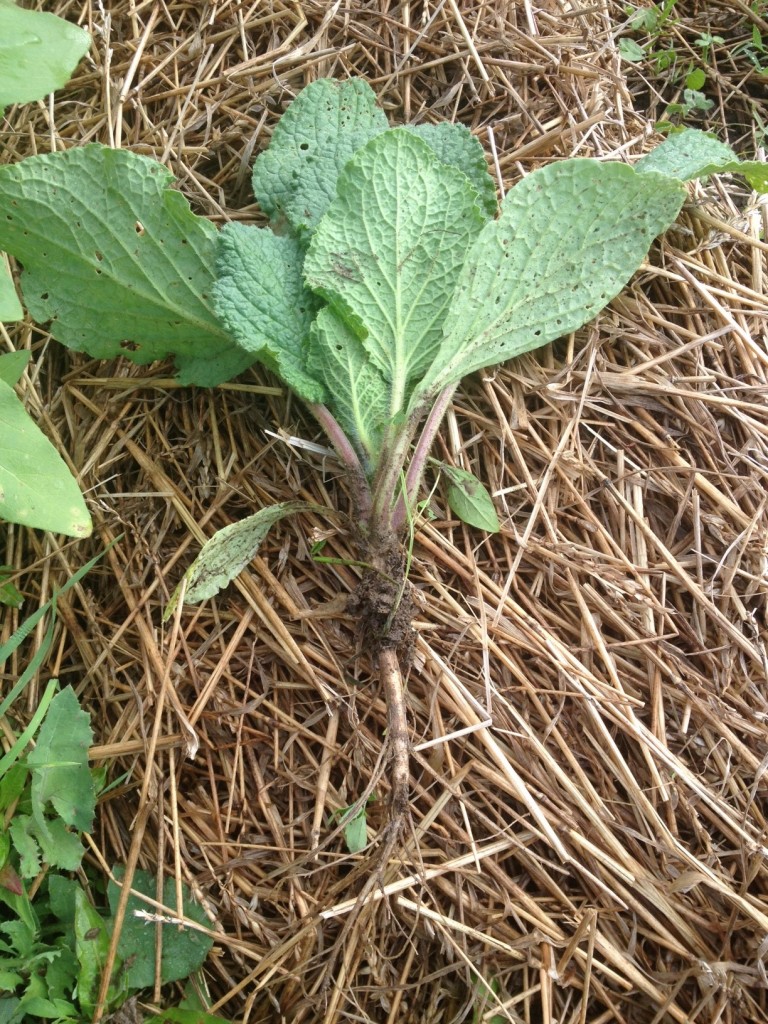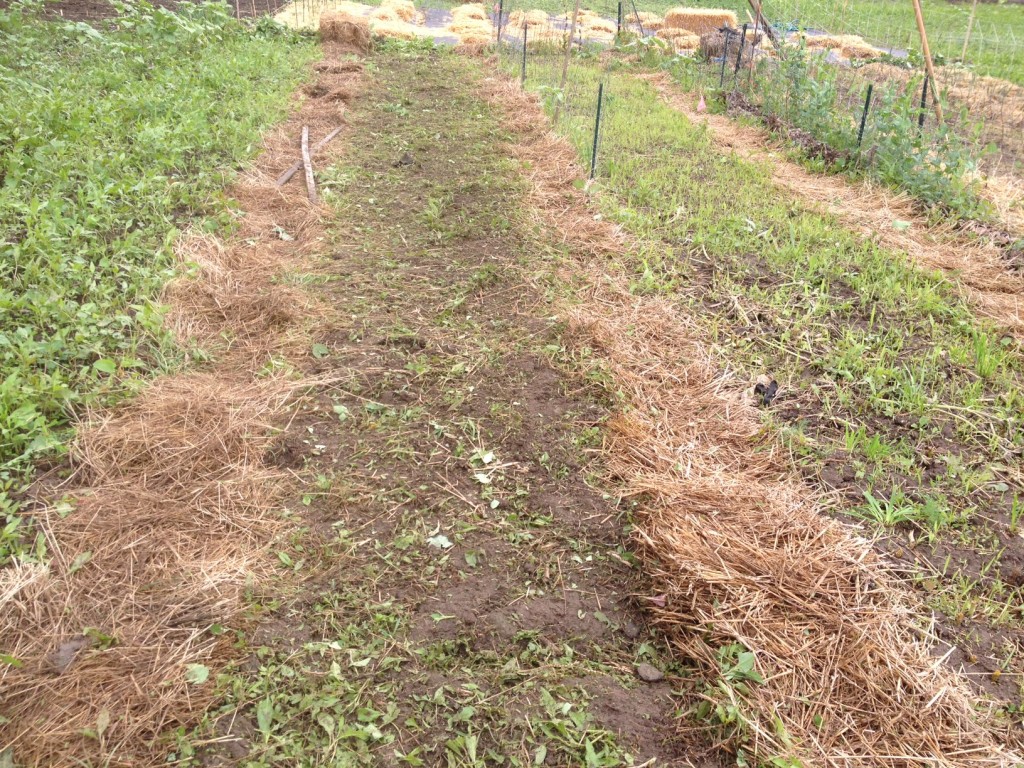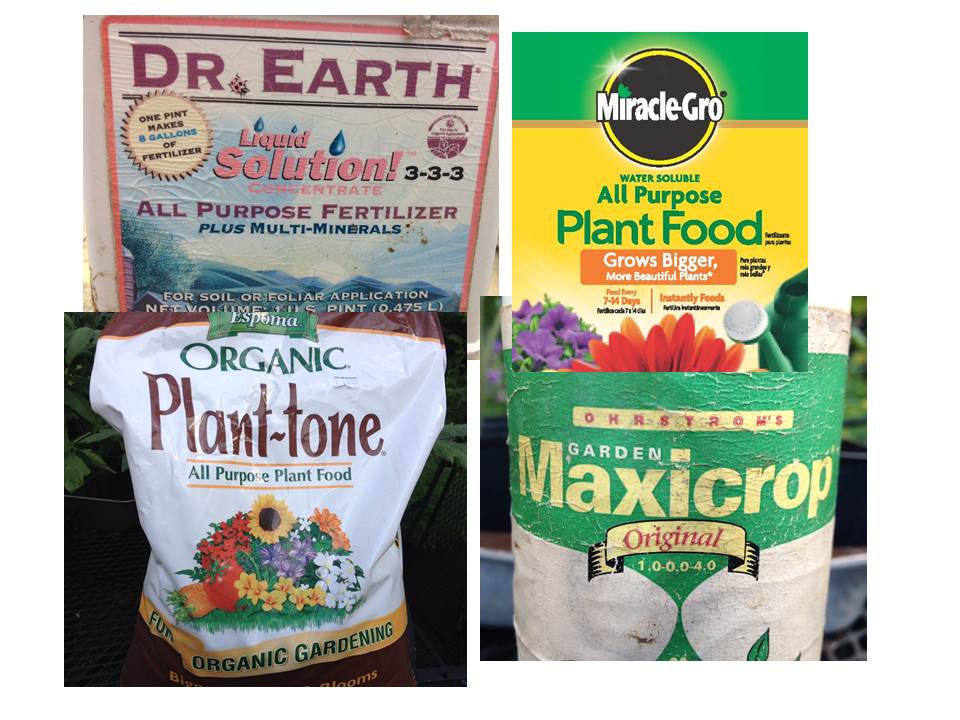As some of you know, I garden in a community garden here in Columbus, called Wallace Gardens. Wallace is a Victory Garden remnant from long ago when folks fed their families with what they could grow themselves. I am happy to have the space as my yard is deep shade under Walnut trees.
Unfortunately, having a garden in one spot with many plot owners and gardeners in various states of interest and plot management has selected our community garden for an amazing array of pest, diseases and weeds that have all naturalized in this spot and will easily out-compete any planted vegetable. I posted a pic recently of weeds that developed over about a month or so of work related neglect.
 Amazingly enough, this spot is one of the least weedy spot in the garden. This bed had tomatoes last year under a deep hay mulch for most of the whole season. The plow however spreads each plot into each other plot so this is what you get. Mix into this poor fertility, little organic matter and an impermeable hardpan from 70 years of same depth plowing and you have a piece of ground in need of help.
Amazingly enough, this spot is one of the least weedy spot in the garden. This bed had tomatoes last year under a deep hay mulch for most of the whole season. The plow however spreads each plot into each other plot so this is what you get. Mix into this poor fertility, little organic matter and an impermeable hardpan from 70 years of same depth plowing and you have a piece of ground in need of help.
I decided this year to take one-third of my garden space out of production and cover crop it instead. For those who are unfamiliar with this, a cover crop is a planted crop, could be grass, legume, brassica, etc. that brings a set of benefits to the ground to keep the ground in use and to improve it depending on what you need improved.
I have hardpan, weeds and low organic matter. My choice is Brown Mid-Rib Sorghum X Sudan grass
In the Logan Community Garden, approximately one-third of the ground is open and so the plan is to cover crop with Buckwheat. This garden has weeds, but is not yet at hardpan and just needs to keep the soil working, weed suppress and add organic matter. Buckwheat is elite at that.
Next year I will move the cover crops over to the spot with peas and mixed summer veggies and the third year I will cover crop the tomato and spring vegetable section. This will allow for a three year rotation and add hundreds of pounds of biomatter as well as *hopefully* taking care of some bindweed, morning glory and mint problems I have had the last few years. I am going to track progress of organic matter addition using some new soil testing methods going on at OARDC and will keep you all in the loop.
- 1st year rotation bed, tilled
- second year rotation bed
- third year rotation bed
Do you want to learn how to incorporate these techniques in your garden? I will be teaching a FREE class on Fertilizers, Soil Health & Organic Matter and will be talking about cover crops as part of the class. I hope to see you on Tuesday June 14th at 7pm





















